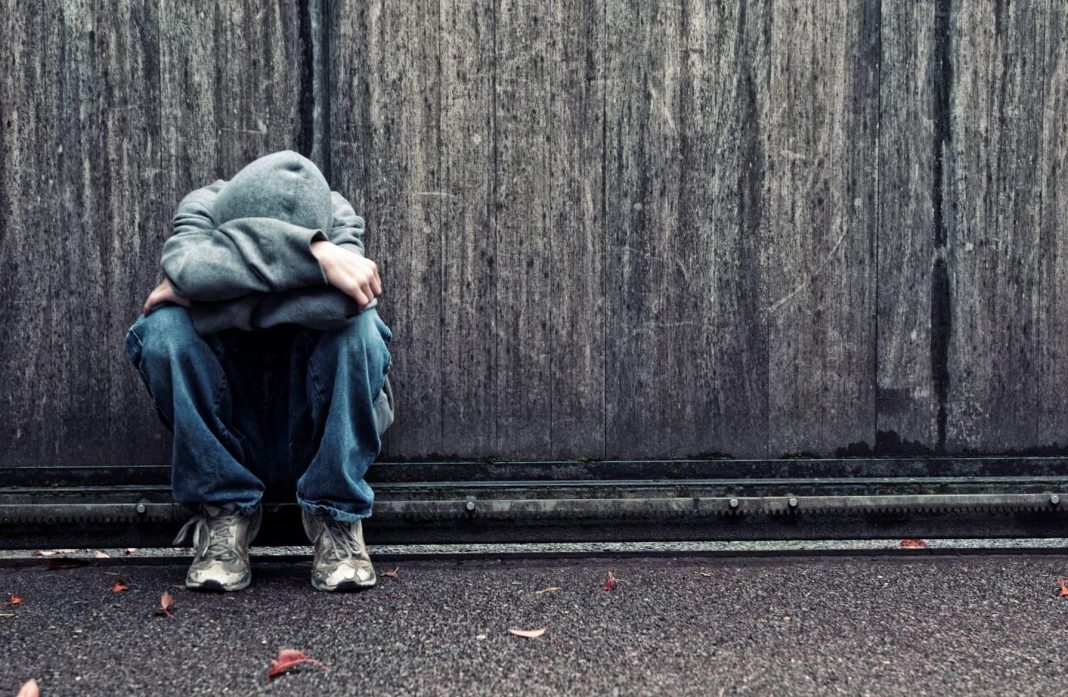Nearly one in every 20 young people aged between 15 and 19 living in the ACT experienced homelessness for the first time since the beginning of the pandemic, according to a new study conducted by Mission Australia.
The Without a home: First-time youth homelessness report released today, Thursday 28 July, surveyed over 20,200 teenagers aged 15-19 from across the country last year as part of the organisation’s 20th annual Youth Survey.
The main focus of the report comes from the question: ‘Have you ever spent time away from home because you felt you couldn’t go back?’ Those who answered yes were then asked follow-up questions to determine where they went, why they left, when it occurred, and how long they spent away from their previous residence.
A total of 764 respondents were from the ACT, with 4.3 per cent of those saying they had experienced first-time homelessness in 2020-2021 during the Covid-19 pandemic.
As well as the worrying fact that many teens found themselves without a place to sleep, Mission Australia is concerned about long-lasting implications. There could be a ripple effect in the lives of the teens if adequate intervention is not provided.
Already the survey shows the destabilising impacts that transient housing can have on young people. More than half (55.5 per cent) of youth who had experienced first time homelessness reported having high psychological distress, almost double the rate of those with a home.
The statistics show young women were nearly twice as likely to experience first-time homelessness than their male counterparts. Domestic and family violence was a concern for 28 per cent of those experiencing first time homelessness compared to 10.5 per cent of those who weren’t.
The pandemic didn’t just have an impact on the housing situation for young people; it also impacted their social lives and ability to find or hold down a job. Close to half (45.4 per cent) of youths surveyed said Covid-19 had negatively impacted their friendships, while 40.8 per cent said their employment had been negatively impacted.
Along with the report findings, Mission Australia has outlined a 14-step policy and practice recommendation update to ensure the needs of those who are at risk or are already experiencing homelessness are at the top of the government’s priorities.
Mission Australia’s ACT director, Nada Nasser, says action needs to come from both a territory and federal level for the issue of youth homelessness to be properly addressed.
“It’s a combination of responsibility. The federal government is really important, that is what drives the funding for houses and models, and we’re delighted to see their investment in social housing, but more is needed,” Ms Nasser said.
She said a lot could be done at state and territory level which would include implementing their proposed programs in schools to screen for risk of homelessness, localised student wellbeing strategies, and flexible learning options for those without a stable address.
Some of their other proposed strategies include increasing funding to youth housing options, more drug treatment facilities funded by the Commonwealth, tailoring employment opportunities specifically for young people, and better support during times of national and localised emergencies.
The ACT Government provides support for homelessness services for young people in need which includes emergency accommodation, outreach support, mentoring and living skills program as well as housing support, as said by Minister for Homelessness and Housing Services Rebecca Vassarotti. She also said they are working with a team of specialists in how to best address the complex issues which can lead to youth homelessness like domestic violence, mental health and family breakdowns.
“We are co-designing services with the specialist homelessness sector to identify where the root cause of issues lie and develop programs together that support people before they become at risk of or experience homelessness, including young people.” Minister Vassarotti said.
Minister for Families and Community Services Rachel Stephen smith acknowledged that family violence is one of the highest contributing factors to youth homelessness. Explaining in recent years the ACT Government has partnered with several community sectors to design and build an early support service called Safe and Connected Youth; supporting Canberrans aged 8 to 15 who are at risk of homelessness due to family violence. Which after a successful pilot program, committed to expanding to introduce a dedicated therapeutic respite accommodation to help vulnerable youth recharge in a safe environment.
“This work commenced with a pilot program that worked with a child or young person and their family, offering outreach support, therapeutic case management and family mediation. The evaluation demonstrated the program’s success in decreasing the risk of homelessness while increasing employment, education and mental health outcomes for the young people who were engaged.” Minister Stephen- Smith said.
A spokesperson from the ACT government provided a list of community organisation which they contribute funds to help run youth homelessness program through. These include but are not limited to:
- Barnardos in the ACT offers three programs that assist with youth homelessness – the Friendly Landlord Service, the Young Identified Accommodation Support Program and Our Place.
- The Youth Emergency Accommodation Network operated by the Salvation Army provides support and accommodation to young people experiencing crises where all other accommodation options have been exhausted.
- The Ted Noffs Foundation offers the Continuing Adolescent Life Management program here in the ACT, providing a range of community based therapeutic services including individual and family counselling, life skills development and education and vocational programs.
Young people needing support with homelessness in the ACT should contact OneLink on 1800 176 468 (Monday-Friday 8am-6pm) or visit onelink.org.au
If this story raised concerns, help is available. Call or visit the website of Lifeline (13 11 14) or Beyond Blue (1300 22 4636). In an emergency, call 000.
Get local, national and world news, plus sport, entertainment, lifestyle, competitions and more delivered straight to your inbox with the Canberra Daily Daily Newsletter. Sign up here.



